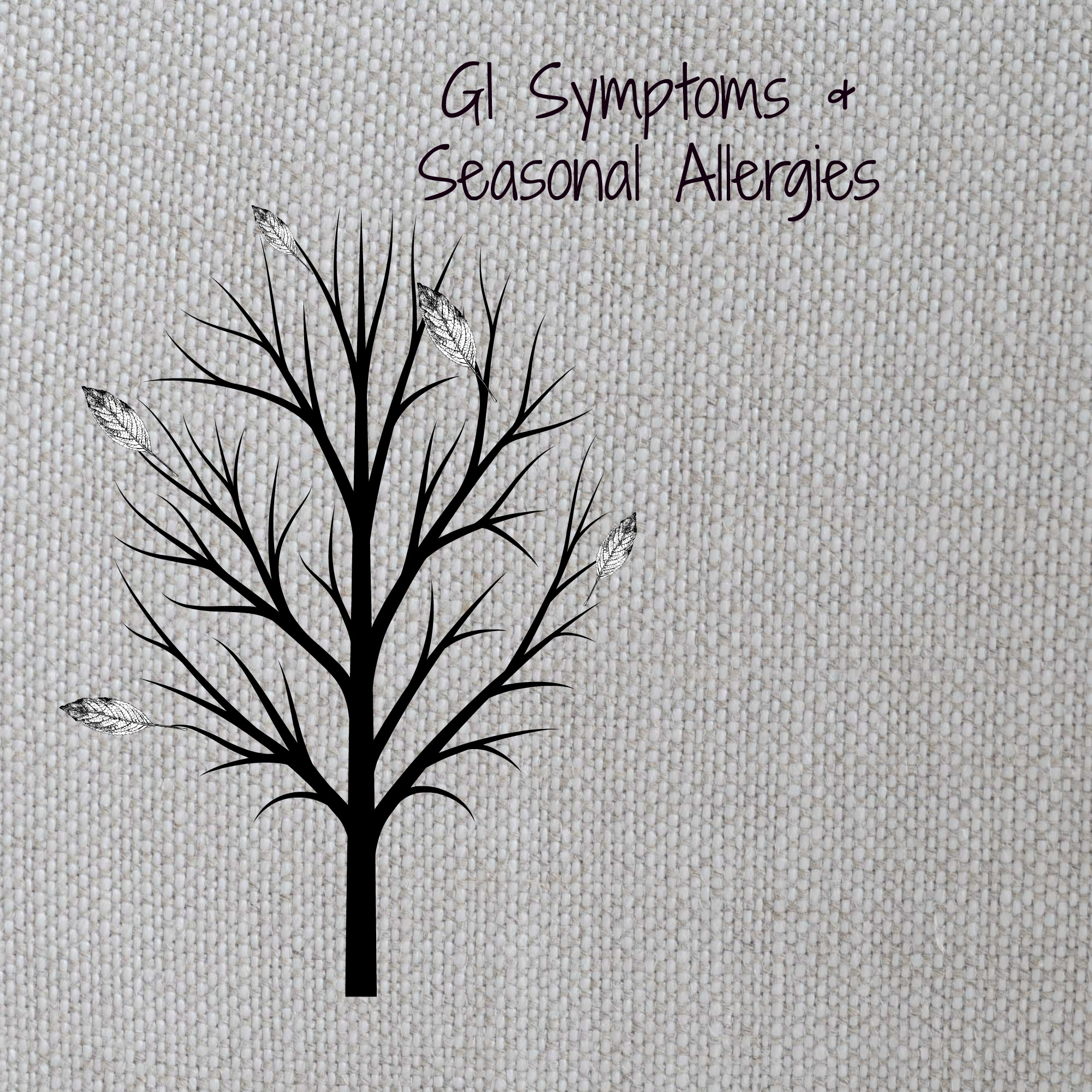Do you suffer from enhanced GI symptoms during allergy season?
The timing of allergy season varies depending on where you live. According to American College of Allergy, Asthma and Immunology tree, grass and ragweed pollens thrive during cool nights and warm days.
Did you know that birch pollen allergic patients frequently experience gastrointestinal upset during birch allergy season? This GI upset may occur via local allergic inflammation in the small intestine.
Research has shown (studies provided below) that birch pollen exposure triggered a local inflammation with an increase in duodenal eosinophils and IgE-carrying mast cells in patients with birch allergy suggesting a relationship between immune cells in the airway and in the gut.
Although many of us look forward to the warmer weather and the beauty that it brings, some may find that their GI symptoms can flare during the change of the seasons.
Oral allergy syndrome is linked with pollens that cross react with similar-like proteins in foods. For this discussion, I am focusing on birch pollen allergy, but individuals that suffer with ragweed, grass, and rubber latex allergy may have oral allergy syndrome induced by proteins in foods too. Oral allergy syndrome presents with itchy throat, itchy ears and even hives in the mouth. To learn more from The Asthma and Allergy Foundation of America, click here.
Not everyone with a pollen allergy experiences oral allergy syndrome!
Oral allergy syndrome is caused by cross-reacting allergens found in both pollen and raw fruits, vegetables, or some tree nuts. The immune system recognizes the pollen and similar proteins in the food and directs an allergic response to it. Most people with oral allergy syndrome can eat the foods with the cross reacting allergens if they have been cooked as cooking alters the proteins, so the immune system does not recognize the food as an enemy. Cooking, peeling and canning fruits alters or removes the proteins and often makes them more tolerable.
Interesting research on the overlap of birch pollen allergies and GI symptoms makes me wonder if patients with exacerbation of GI symptoms during birch pollen allergy season, might benefit from reduction of foods that contain these similar proteins? More research is needed. It is interesting to note that many of the foods listed as cross reacting with birch contain FODMAPs too! See list below:
Birch Pollen Allergy: People with birch pollen allergies may react to kiwi, apples, pears, peaches, plums, coriander, fennel, parsley, celery, cherries, carrots, hazelnuts and almonds.
Although rare, a recent study shows that in about 2% of patients with oral allergy symptoms could progress to the more serious allergic reaction of anaphylaxis, a serious reaction that could be deadly without immediate emergency treatment. For this reason, it would be best to seek advice and evaluation from an allergist if you note oral allergy symptoms.
If you are a health professional or one that likes to delve further in the science, here are a few articles to review.
Intestinal allergic inflammation in birch pollen allergic patients in relation to pollen season, IgE sensitization profile and gastrointestinal symptoms: To access, click here.
Seasonal intestinal inflammation in patients with birch allergy: To access, abstract, click here



Amy Gilliland
“Histamine, a measure of immune activation, was reduced eightfold in the low FODMAP diet group.” High levels of histamines can also cause other mucousal lining interactions in other organs, such as the bladder. For some people with painful bladder syndrome (old name interstitial cystitis), the first line of effective treatment is a loratidine pill every day (Claritin). There are multiple causes to PBS/IC, which is why its’s a syndrome. What causes the increased histamines is unknown in PBS. But this would explain why some people on the low FODMAPS diet have a lessening of bladder symptoms as long as they also stay away from obviously acidic foods or take Prelief to reduce the acid content. I’ve been wondering about that in the group of people who have both IBS and PBS. Thanks for the explanation!! Dr. Amy
katescarlata
Dr. Amy, I think mast cell activation syndrome is another overlapping issue patients w/ PBS, Migraines, Fibromylagia and IBS–at least in a subset of patients. I truly believe histamine is a player in these conditions–and now, with new research showing a reduction of histamine w/ the low FODMAP diet—we are learning more about mechanisms for how the low FODMAP diet may offer symptom benefit and why.
Christi
I am so excited to see information about this, especially oral allergy syndrome! I can remember complaining as a child of itchy mouth when I would eat apples, but I never heard of OAS until I was an adult! Most people have never heard of it so thank you for this post and for raising awareness!